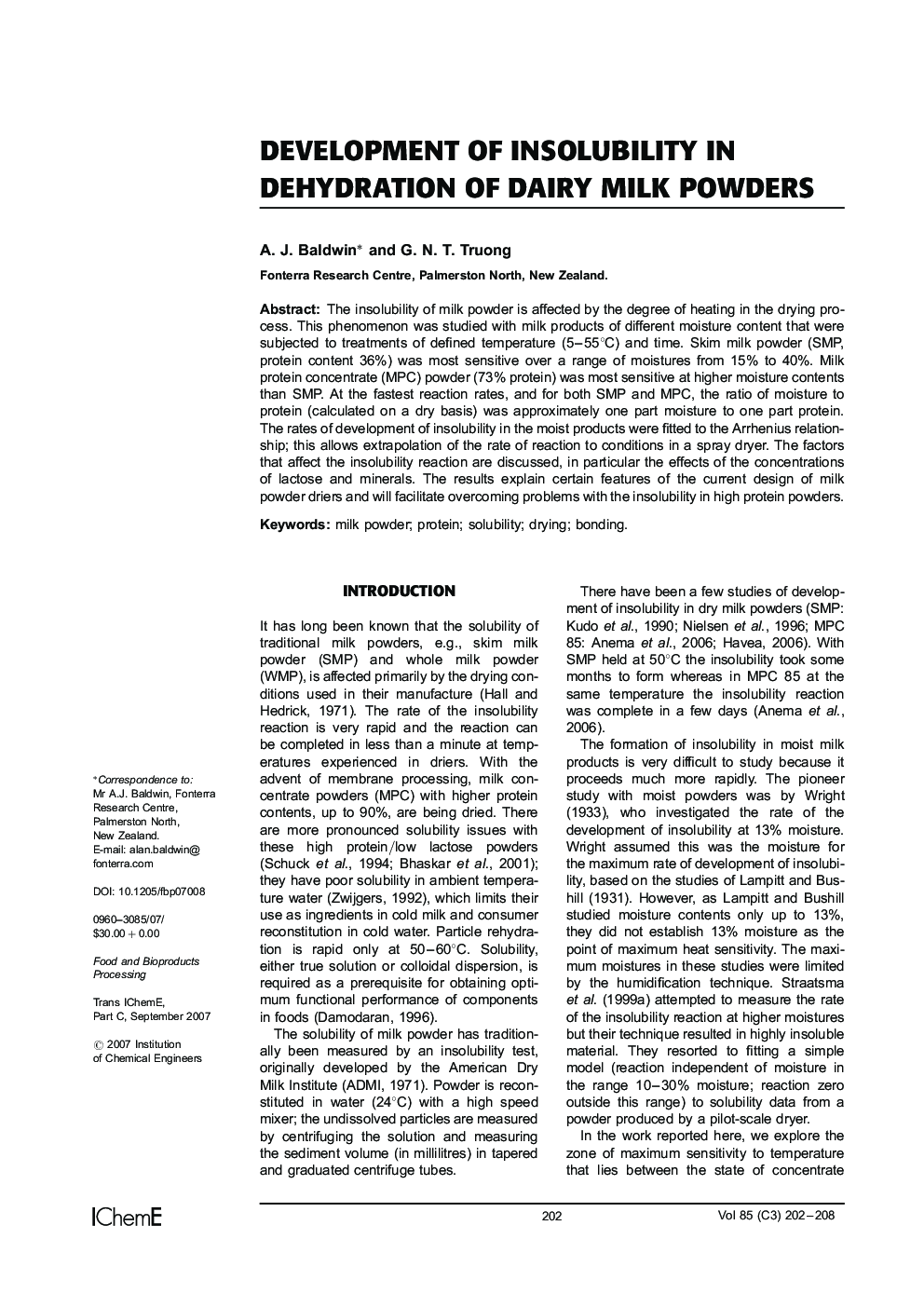| Article ID | Journal | Published Year | Pages | File Type |
|---|---|---|---|---|
| 19491 | Food and Bioproducts Processing | 2007 | 7 Pages |
The insolubility of milk powder is affected by the degree of heating in the drying process. This phenomenon was studied with milk products of different moisture content that were subjected to treatments of defined temperature (5−55°C) and time. Skim milk powder (SMP, protein content 36%) was most sensitive over a range of moistures from 15% to 40%. Milk protein concentrate (MPC) powder (73% protein) was most sensitive at higher moisture contents than SMP. At the fastest reaction rates, and for both SMP and MPC, the ratio of moisture to protein (calculated on a dry basis) was approximately one part moisture to one part protein. The rates of development of insolubility in the moist products were fitted to the Arrhenius relationship; this allows extrapolation of the rate of reaction to conditions in a spray dryer. The factors that affect the insolubility reaction are discussed, in particular the effects of the concentrations of lactose and minerals. The results explain certain features of the current design of milk powder driers and will facilitate overcoming problems with the insolubility in high protein powders.
